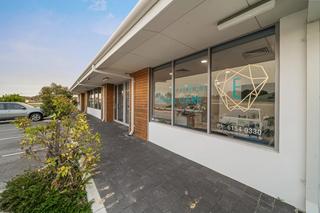
At Exceptional Dental Care, we always aim to save your natural teeth whenever possible, helping you maintain your smile, enjoy your favourite foods, and protect your oral health. However, if a tooth cannot be saved – for example, due to severe decay, damage, or infection – an extraction may be the best option.
When a tooth extraction may be needed
Common reasons for extraction include:
- Dental emergencies
- Severe decay or infection
- Abscessed teeth
- Impacted wisdom teeth
- Large cracks or fractured roots
- Preparation for orthodontic treatment
We’ll carry out a thorough examination and take X-rays to determine whether extraction is the right solution for you.
Understanding wisdom teeth
Wisdom teeth, or third molars, usually appear in your late teens or early twenties. If there isn’t enough space for them, they can cause crowding, pain, infection, or become impacted. Regular check-ups and X-rays allow us to monitor their position and decide if removal is necessary.
Why wisdom teeth may need to be removed
Here are some common reasons why people need to have their wisdom teeth taken out:
- Impaction or partial eruption
- Crowding and misalignment
- Pain, swelling, or infection
- Gum disease or cavities
- Lack of space
Without removal, impacted wisdom teeth can press against other teeth, causing discomfort and potential long-term damage.
Your guide to wisdom teeth removal
If removal is needed, we’ll ensure you are comfortable throughout. Local anaesthesia is provided, and we only proceed once you are ready. We can also offer laughing gas (nitrous oxide) or arrange for an anaesthetist if you prefer deeper sedation. Our goal is to make the procedure as smooth and stress-free as possible.
Recovering from a tooth extraction
Some swelling, discomfort, and light bleeding are normal after an extraction. Use ice packs to reduce swelling and apply clean gauze to control bleeding. Follow your dentist’s advice on pain relief and medication, and drink plenty of water.

Avoid smoking, vaping, or using a straw, as suction can cause dry socket. If you experience severe pain, swelling, or signs of infection, contact us promptly. Our team is here to support you throughout your recovery.
Frequently asked questions
The cost of tooth extraction varies, depending on how difficult they are to remove, where the procedure is performed and who performs it. Delaying tooth removals can lead to more complications, resulting in not only pain but additional costs.
Yes; if you have sufficient space for your wisdom teeth and they’re not causing any problems, then they won’t need to be removed.
Depending on the complexity of your case it could take 1-3 hours.
Dry socket is a complication that can occur after any tooth removal. When teeth are extracted, a blood clot forms over the extraction site. This clot protects bones and nerve endings. If the clot doesn't form or later becomes dislodged, a dry socket can result.
Dry socket typically occurs 1-3 days after your wisdom teeth are removed, and symptoms include:
- Severe pain that gets worse and is not lessened by medication.
- Pain radiating on the same side of your face as the extraction.
- Bad taste or odour in the mouth.
- Seeing visible bone.
Gentle and professional care when you need it most
We understand that the idea of a tooth extraction can feel overwhelming. Our exceptional team is here to make the process as smooth and stress-free as possible - prioritising your comfort, safety, and long-term oral health.
Book online or call us to talk through your concerns. You’re in good hands.

